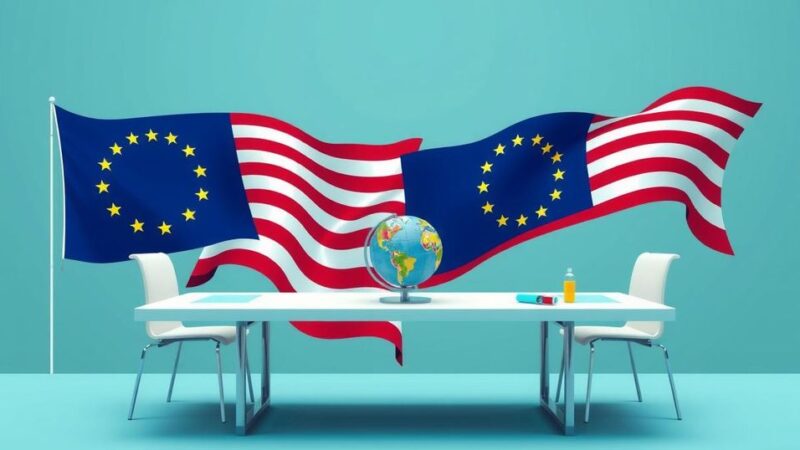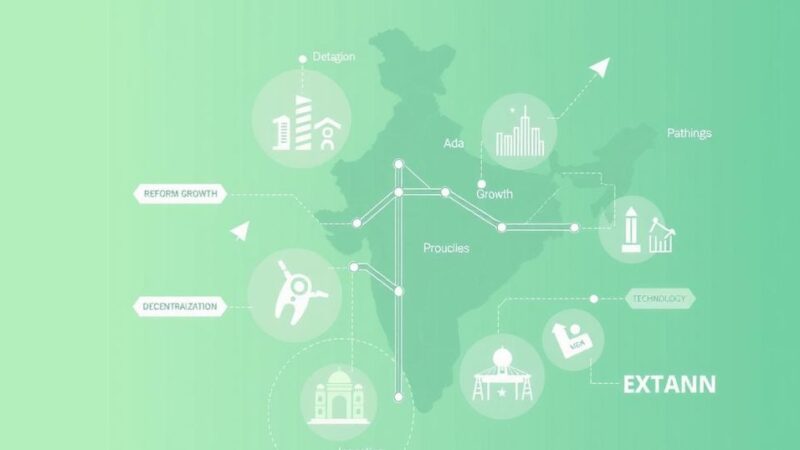President Trump is set to implement reciprocal tariffs targeting multiple countries to rectify trade imbalances. Countries like India may benefit from reduced auto parts tariffs as trade discussions evolve. The administration believes these tariffs are necessary for protecting domestic industries and negotiating better terms, although concerns about a potential trade war and increasing vehicle prices remain.
President Trump has announced that reciprocal tariffs will be implemented targeting countries with which the U.S. has trade imbalances. During comments aboard Air Force One, he stated, “You’d start with all countries,” implying no specific exclusions. White House adviser Kevin Hassett mentioned that 10 to 15 nations would be prioritized, although they remain unidentified.
India is contemplating potential reductions on customs duties for auto parts imported from the U.S., as part of its ongoing efforts to enhance trade relations. Officials assess that lowering these duties would minimally affect the domestic automotive industry, aiming for increased cooperation with the U.S.
Tariffs are viewed by Trump as a strategy to protect the domestic economy from unfair foreign competition and as leverage in trade negotiations. However, concerns about a potential trade war are affecting financial markets and raising fears of a recession.
Trump’s new import taxes will include reciprocal tariffs, matching those imposed by other countries and factoring in existing subsidies. Nations mentioned for tariff consideration include the European Union, South Korea, Brazil, and India. Following a recent imposition of 25% auto tariffs, Trump asserted that the U.S. has been disadvantaged by trade deficits. “This is the beginning of Liberation Day in America,” he announced, emphasizing the need to charge countries profiting from the U.S. market.
Addressing worries about rising vehicle prices, Trump stated he hoped higher foreign car prices would lead to increased sales of American-made vehicles: “If the prices on foreign cars go up, they’re going to buy American cars.”
Despite his firm stance on tariffs, Trump is open to treating nations more favorably based on reciprocal treatment. His administration plans to impose additional tariffs on pharmaceuticals, copper, lumber, and Venezuelan oil, while also enforcing a 20% tariff on Chinese imports due to fentanyl production issues. Separate tariffs on goods from Canada and Mexico relate to border security concerns, along with extended steel and aluminum tariffs.
Some of Trump’s aides argue that tariffs are a means of negotiation regarding trade and border security, while others believe they can assist in tackling the federal budget deficit. Commerce Secretary Howard Lutnick emphasized that these tariffs would enforce respect from other nations towards the U.S.
In summary, President Trump’s administration is poised to impose reciprocal tariffs as part of a broader strategy to address trade imbalances with select countries. While India considers reducing auto parts tariffs, Trump’s stance is that these tariffs will protect American jobs and industries. Despite concerns over a trade war, the administration views these measures as essential for renegotiating trade terms and enhancing respect from global partners.
Original Source: m.economictimes.com






